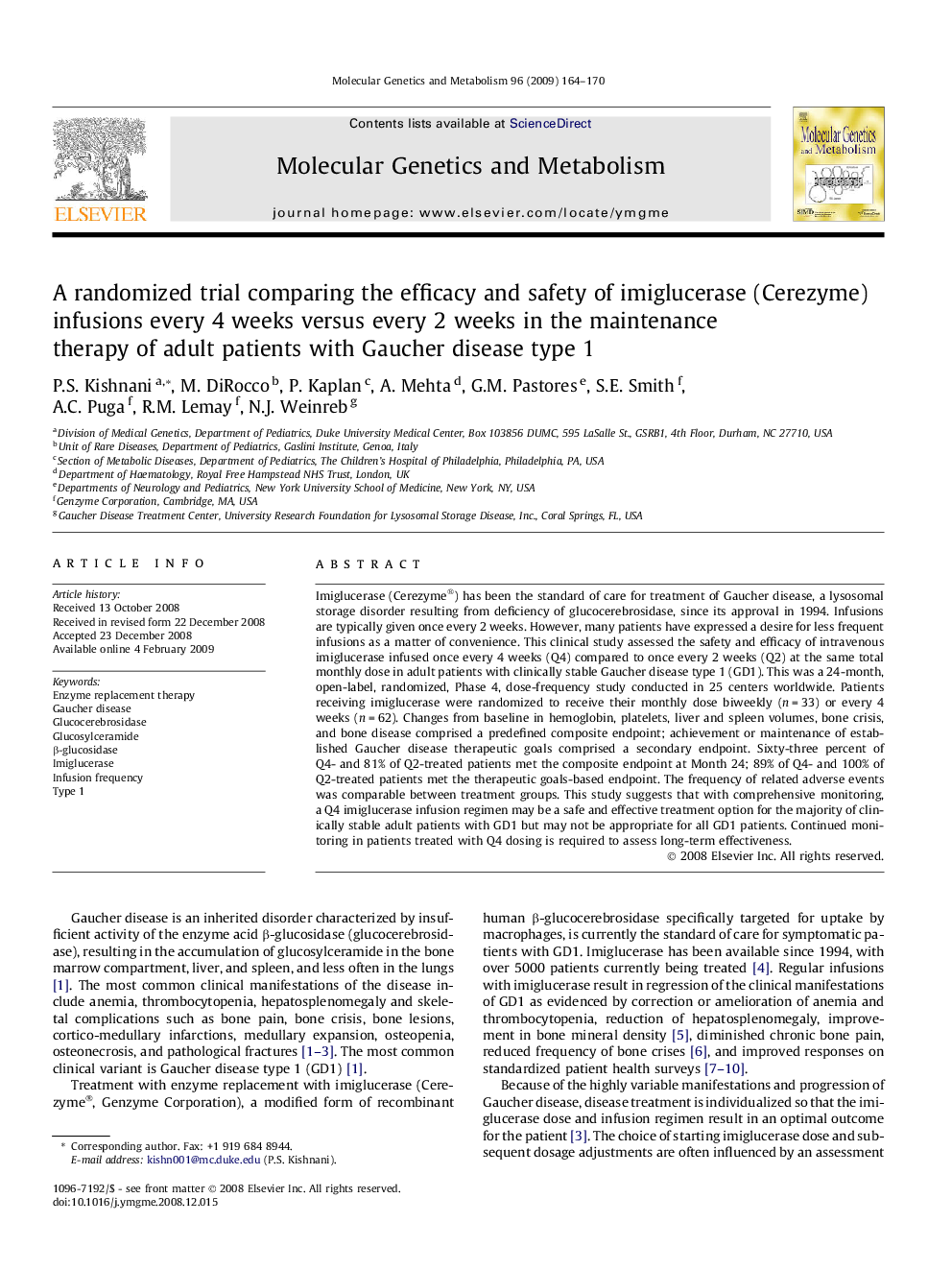| Article ID | Journal | Published Year | Pages | File Type |
|---|---|---|---|---|
| 10834331 | Molecular Genetics and Metabolism | 2009 | 7 Pages |
Abstract
Imiglucerase (Cerezyme®) has been the standard of care for treatment of Gaucher disease, a lysosomal storage disorder resulting from deficiency of glucocerebrosidase, since its approval in 1994. Infusions are typically given once every 2 weeks. However, many patients have expressed a desire for less frequent infusions as a matter of convenience. This clinical study assessed the safety and efficacy of intravenous imiglucerase infused once every 4 weeks (Q4) compared to once every 2 weeks (Q2) at the same total monthly dose in adult patients with clinically stable Gaucher disease type 1 (GD1). This was a 24-month, open-label, randomized, Phase 4, dose-frequency study conducted in 25 centers worldwide. Patients receiving imiglucerase were randomized to receive their monthly dose biweekly (n = 33) or every 4 weeks (n = 62). Changes from baseline in hemoglobin, platelets, liver and spleen volumes, bone crisis, and bone disease comprised a predefined composite endpoint; achievement or maintenance of established Gaucher disease therapeutic goals comprised a secondary endpoint. Sixty-three percent of Q4- and 81% of Q2-treated patients met the composite endpoint at Month 24; 89% of Q4- and 100% of Q2-treated patients met the therapeutic goals-based endpoint. The frequency of related adverse events was comparable between treatment groups. This study suggests that with comprehensive monitoring, a Q4 imiglucerase infusion regimen may be a safe and effective treatment option for the majority of clinically stable adult patients with GD1 but may not be appropriate for all GD1 patients. Continued monitoring in patients treated with Q4 dosing is required to assess long-term effectiveness.
Related Topics
Life Sciences
Biochemistry, Genetics and Molecular Biology
Biochemistry
Authors
P.S. Kishnani, M. DiRocco, P. Kaplan, A. Mehta, G.M. Pastores, S.E. Smith, A.C. Puga, R.M. Lemay, N.J. Weinreb,
